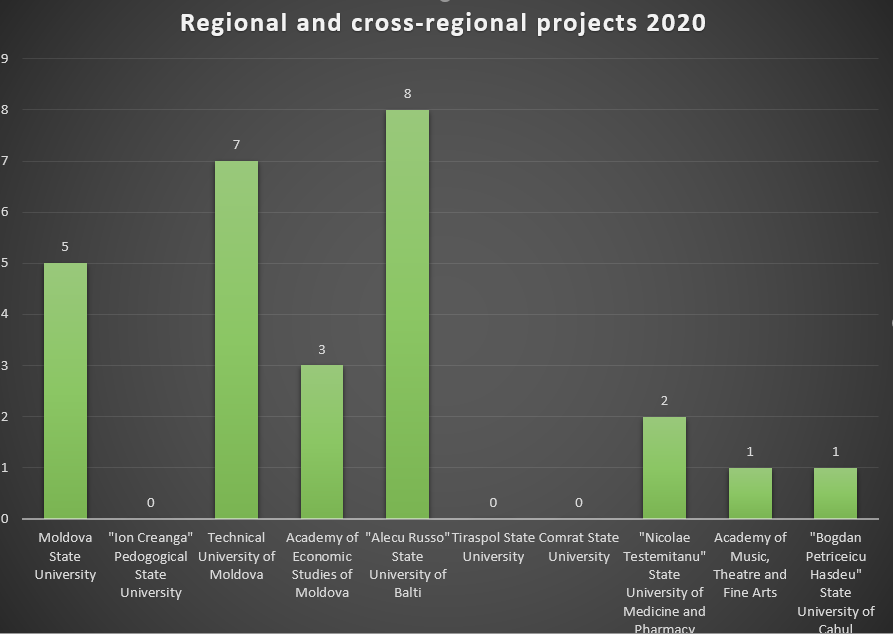

The most common projects in Moldova are Capacity Building projects. CBHE Projects are transnational cooperation projects based on multilateral partnerships, primarily between Higher Education Institutions (HEIs) from Programme Countries (EU countries + Turkey, Sweden, Iceland, Former Yugoslav Republic of Macedonia and…) and eligible Partner Countries (other countries of the world). They can also involve non- academic partners to strengthen the links with society and business and thus, to reinforce the systemic impact of the projects. The activities aim to promote cooperation and partnerships with impact on modernizing and internationalization of institutions and on higher education systems in Partner Countries, with a special accent on countries neighboring EU. HEIs from Moldova can apply directly for financing in Capacity Building projects, by being part of a consortium. Projects can be granted up to 3 years, depending on the established objectives and the type of the foreseen activities.
Capacity Building projects aim to:
Two types of projects are supported:
Joint Projects, aimed at producing outcomes that benefit principally and directly the organizations from eligible Partner Countries involved in the project. These projects typically focus on three different types of activities:
Structural Projects are aimed at producing an impact on higher education systems and promoting reforms at the national and/or regional level in the eligible Partner Countries. These projects typically focus on two different categories of activities:
Within Key action 2, Moldovan HEIs can benefit from Knowledge Alliances and Strategic Partnership projects as well, last ones being managed by the National Erasmus+ Agencies. In both cases, the universities from Moldova can only be partners and have to bring added value to the project, in order to participate.
It is expected that the Key action 2 projects will lead to development, transfer and/ or applying new, innovative practices at local, regional or European organizational levels.
More information about eligible projects in Moldova: http://www.erasmusplus.md/en/eligible-projects
Due to the survey elaborated in ELEVATE project and the National benchmarks elaborated by the Ministry of Education, Culture and Research also in the frame of the ELEVATE project, there were colected a database with the information about the number of Regional and cross-regional projects. This alow to us to bring you an overview of the Moldovan HEIs’ level regarding the Regional and cross-regional projects for the period 2018 – 2020.

The next graphic presents the dates for the year 2020.


